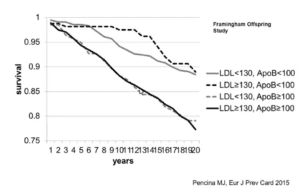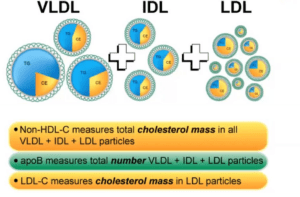
In a recent enlightening webinar featuring Dr. Subodh Agrawal and Steven McConnell from Pennsylvania, the spotlight was on understanding and mitigating the risk of two of the most prevalent yet silent threats to our well-being: heart attacks and strokes. Let’s delve into the crucial insights shared in this impactful discussion.

The webinar kicks off by underscoring the significance of proactively evaluating your risk of heart attack and stroke, even from an early age. According to the speaker, individuals with a significant family history need to start keeping a close eye on their health. And the advice is clear: have your lipid measurements taken every 5 to 6 years. The American Heart Association, a strong advocate for a healthier America, emphasizes the importance of taking charge of your health. The Association suggests that individuals, both young men and women around 20 years old, should proactively check their lipid levels every 5 to 6 years. This guidance highlights how important it is to have early assessments to ensure our future well-being.

A cornerstone of this discussion is the need to regularly monitor key health markers. These markers include blood sugar, blood pressure, cholesterol (especially the notorious LDL, often dubbed ‘bad’ cholesterol), triglycerides, EPO lipoprotein, and EPO protein LP levels. Recognizing the influence of these numbers on your risk of heart attack or stroke is vital. It’s not only about diagnosis; it’s about taking action early and a better quality of life.
The speaker’s emphasis on lifestyle changes, diet, and medication management is a call to action. Lifestyle choices have a profound impact on these health markers. Making healthier food choices, incorporating exercise into your routine, and managing medication effectively can drastically reduce your risk of heart attack and stroke. It’s about realizing that your health is your wealth, and these changes can secure a healthier, more prosperous future.
The discussion doesn’t stop at general advice; it highlights the role of genetics in personal healthcare. Genetic testing can offer a deeper understanding of how your body responds to medication, allowing for a tailored healthcare approach. This precision medicine can make treatments more effective, safer, and aligned with your unique genetic makeup.
The webinar doesn’t just scratch the surface; it dives into the nitty-gritty. The speaker discusses the size and number of LDL particles – the ‘bad’ cholesterol. Understanding that not all LDL is created equal is essential. Larger and fewer LDL particles indicate a lower risk, while smaller and denser particles can penetrate arterial walls more easily. Asking your physician about ApoB, in addition to regular lipid tests, can provide a more complete picture. It’s about recognizing that a deeper understanding of your risk requires regular monitoring and follow-ups.

The webinar provides insights into understanding what triggers most heart attacks and strokes – unstable small plaques. These highly inflammatory culprits are often responsible for the majority of incidents. To diagnose and monitor these plaques, coronary ultrasounds, and calcium scores are recommended. Coupled with specific medications and lifestyle changes, they can help manage high risk effectively.
A little-known but crucial element in understanding heart disease and stroke risk is Lipoprotein A (LP(A)). The speaker reveals that individuals with elevated LP(A) levels are at a higher risk of cardiovascular disease, irrespective of other lipid panel values. This is a game-changer for those at high risk, and the speaker advocates for screening LP(A) levels in individuals with a history of heart disease to prevent future incidents.

The webinar underlines the paramount importance of cholesterol control in mitigating the risk of stroke and heart attack. It goes further to state that cholesterol control is even more critical than managing other factors like blood sugar and blood pressure. Getting your cholesterol numbers under control is the first step toward better management of overall health.

A central theme is taking control of your health at a young age. Being aware of your health indicators, regularly tracking them, and adopting essential lifestyle adjustments are the keys to a healthier, more prosperous, and safer life. The webinar stresses that waiting for symptoms to appear is not the way to go; early intervention and proactive measures are vital.
The speaker also highlights the role of technology in health management. The use of health apps and devices in your daily routine simplifies health data monitoring, which enables you to take charge of your overall health with greater ease and effectiveness.
Understanding and addressing the risks of heart attacks and strokes is an active step towards safeguarding your health in the long run. It’s about embracing the vital impact of family history, genetics, lifestyle preferences, and dietary habits in shaping a healthier, wealthier, and safer life. This enlightening webinar emphasizes that, for long-term well-being, a blend of knowledge and taking the right action is the golden ticket to a healthy life.
Become a Partner
Support
Portals